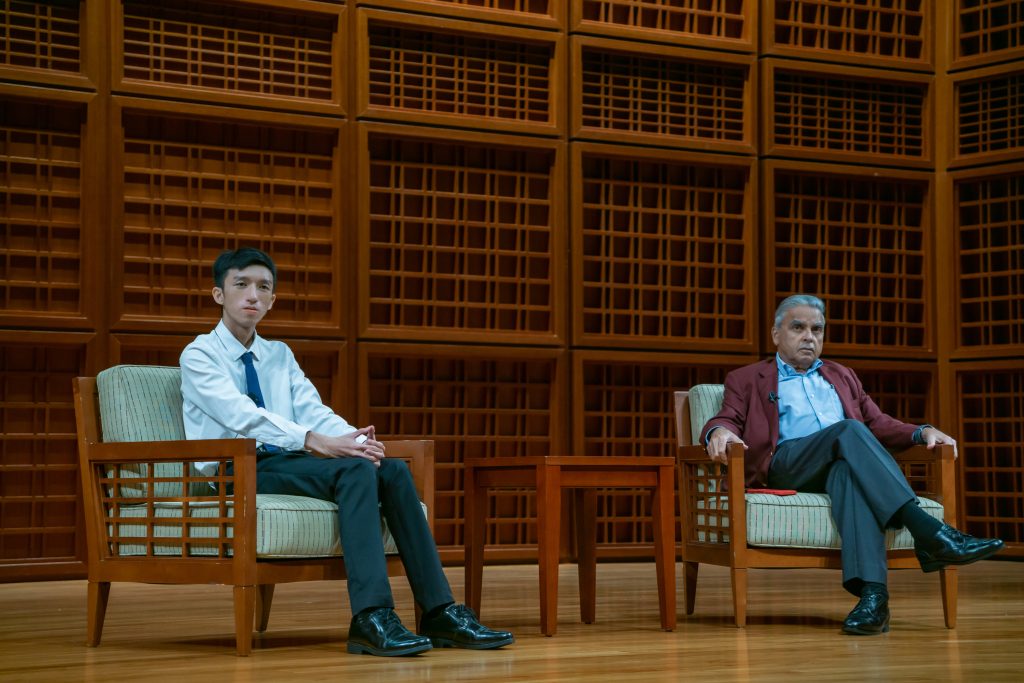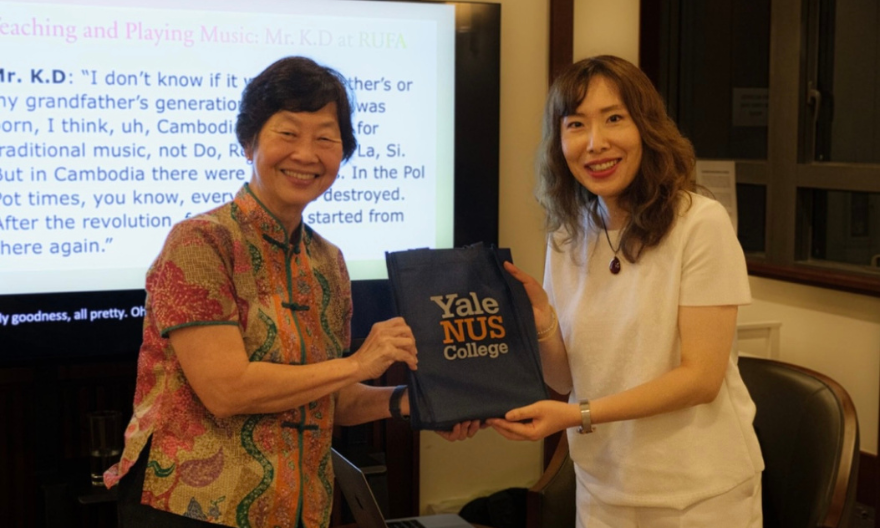The three laws of geopolitics
Professor Kishore Mahbubani unpacks geopolitical trends in a talk organised by the Yale-NUS Emerging Markets Institute
In a 21st century rife with international tensions, from the ongoing Russia-Ukraine conflict to increasingly fraught United States (US)-China relations, geopolitics is crucial to our understanding of global developments and international affairs today. To gain insights into the role of geopolitics in contemporary world affairs and international relations as well as learn from the first-hand experiences and observations of a diplomat, the Yale-NUS Emerging Markets Institute (EMI) invited Professor Kishore Mahbubani, Distinguished Fellow at the Asia Research Institute, to share his views in a speaker session titled, ‘A Conversation with Kishore Mahbubani’ on 7 April 2022.
Citing different events across the world over the past few decades, the veteran diplomat and academic distilled three basic laws which govern the ebb and flow of geopolitics, and by extension, the foreign policy decisions which countries have chosen to make.

Professor Kishore Mahbubani explaining his three laws of geopolitics. Image by Glen Ang (Class of 2022) for Yale-NUS College.
In his first law, Prof Mahbubani explained that when there is an emerging power that is about to overtake the existing world power, the existing world power will do all it can to push down the emerging power and prevent the emerging power from overtaking itself.
In a similar vein, Prof Mahbubani’s second law of geopolitics asserts that there is a tendency towards war when one power encroaches into the geopolitical space of another power and makes the latter feel threatened. Moving on to the third law, Prof Mahbubani explained how countries often choose national interests over values in foreign policy decision making.
After illustrating the timelessness of each of the three laws through examples and case studies, Prof Mahbubani fielded questions from the audience, many of which centered on his predictions of geopolitical contestation as well as conflict and cooperation between global superpowers.
Exchange student Axel Rooden, who is also a member of EMI, was enthralled by the insights he gleaned from the talk. “Prof Mahbubani’s three laws of international relations remind us how predictable humans are. They also demonstrate the importance of knowing history and being able to make historical parallels,” he said.

Tan Hong Kai (Class of 2022), President of the Yale-NUS Emerging Markets Institute, and Prof Kishore Mahbubani during the interactive Q&A session. Image by Glen Ang (Class of 2022) for Yale-NUS College.
Reflecting on the event, Tan Hong Kai (Class of 2022), President of EMI and moderator of the discussion, noted that “Prof Mahbubani offered astute, nuanced, and objective insights into a range of pressing issues in today’s world, from the role of ASEAN amid growing US-China rivalry in Southeast Asia, Washington’s approach towards Beijing, and the economic rise of India, to the Russia-Ukraine conflict, the reform of the global governance system, and the multifarious intersections between international relations, climate change, and the COVID-19 pandemic.”
“Members of the audience also posed some gripping questions about the politics of international finance and global currencies, the weaponisation of disinformation in today’s digital age, as well as Prof Mahbubani’s personal experiences with international negotiations at the United Nations. The scintillating exchanges shed light on new perspectives across each of these timely and critical topics, and provided a valuable lens through which we can observe, understand, and analyse global issues of fundamental importance,” Hong Kai added.
As part of EMI’s mission to facilitate opportunities for conversations related to the emerging markets and connect Yale-NUS students with experts to support their individual development, Hong Kai hopes that this event has promoted greater understanding of global geopolitical affairs, which could present profound implications for the economic development and future trajectories of emerging markets in the world.




